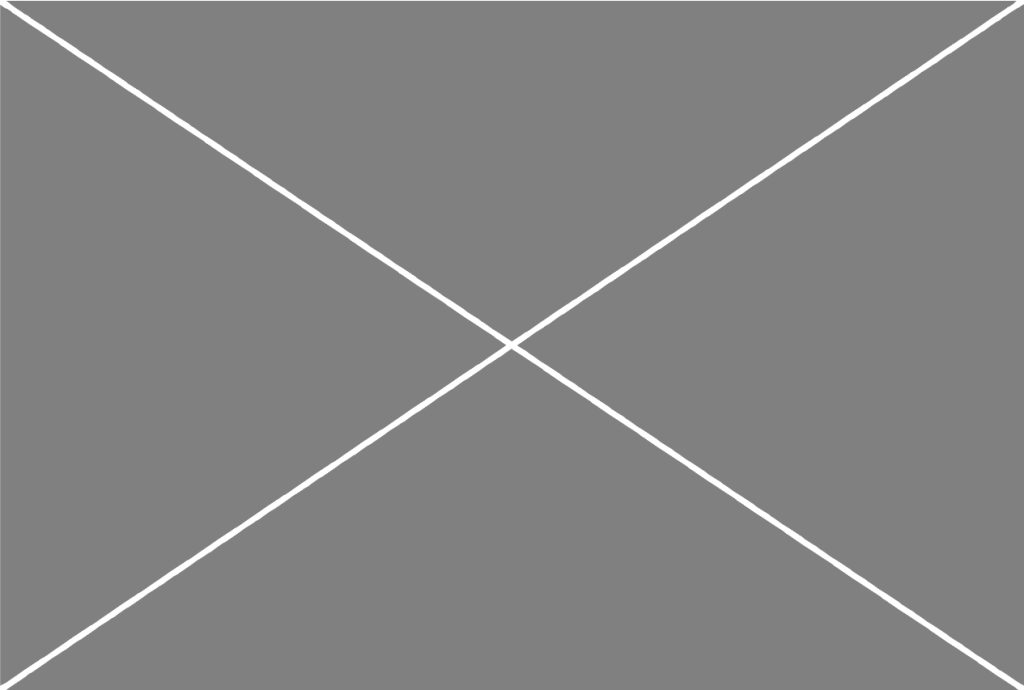
From a syllabus to an ecology of learning
What began as A Syllabus on Fragments, Specimens, and More-Than-Human Methods has evolved into a broader pedagogical experiment—an ecology of learning that grows from my research practice. Over time, I realized that the syllabus was not simply a list of readings but a living diagram of relations: a way of thinking about teaching as ethnographic composition. It became a framework for translating years of fieldwork, writing, and visual experimentation into a structure for learning.
This project takes the form of curricular ecologies—a set of interconnected clusters and courses that bring together my research on fragments, infrastructures, and more-than-human worlds. Each cluster is both a conceptual field and a pedagogical habitat: a place where theory, fieldwork, and creative practice coexist and evolve.
Urban Mapping, a course I taught at Hochschule Emden-Leer and Hochschule Magdeburg-Stendal, was one of the first concrete spaces where I tested many of the ideas that are now part of Curricular Ecologies of Experimental Ethnography. Designed as an undergraduate social work course, it allowed me to experiment with urban mapping, participatory cartography, and inventive fieldwork as teaching devices.
Overall, this series of courses proposed here is conceived as methodological and pedagogical experiments for a future Faculty of European Ethnology or Anthropology, and it also serves as the conceptual infrastructure of this website—the pedagogical counterpart to its curatorial and speculative components. In this sense, the site itself functions as an ecosystem of learning, where courses, projects, and experiments cross-pollinate.
Learning from what I wished to learn
Designing these clusters has been a reflective and affective process. I asked myself what I would have liked to learn as a student of anthropology:
- How can ethnography be taught not only as a method but as a form of world-making?
- How can teaching itself become fieldwork—a way of tracing relations, failures, and transformations?
The result is a set of four curricular ecologies, each composed of two courses—typically one at the BA and one at the MA level—that together trace a movement from observation to invention, from empirical curiosity to theoretical and curatorial reflection.

Cluster 1 — Urban Ethnography and the Infrastructures of Everyday Life
This cluster explores the city as an ethnographic and epistemic field—an infrastructure of relations, materials, and affects. Bridging classical urban theory with feminist, multispecies, and material-culture approaches, it trains students to observe, analyze, and curate everyday life. Through writing, mapping, and collective exhibitions, the courses move from noticing to theorizing the urban, cultivating ethnography as a form of empirical philosophy and curatorial attention. Access.

Cluster 2 — Experimental Ethnography and the Epistemologies of the Incomplete
Ethnography rarely begins with wholes—it starts with fragments. This cluster treats incompleteness, residue, and misclassification not as deficits but as openings for invention. Through reading, fieldwork, and studio practice, students learn to assemble the partial, attend to what remains, and experiment with classification systems that reveal the limits of order. It combines philosophy, anthropology, and the arts to cultivate an ethnography attuned to the fragmentary, the speculative, and the poetic possibilities of error. Access.

Cluster 3 — More-Than-Human Worlds and Alterecology
How can ethnography trace multispecies survival amid ecological ruin? This cluster investigates the ethical and ontological transformations that define life in the Anthropocene. Drawing on feminist STS and environmental anthropology, students learn to engage the entanglements of humans, animals, plants, and infrastructures as alterecological relations—forms of coexistence, decay, and care that exceed human exceptionalism. It reimagines ethnography as an ecological and speculative craft of attention. Access.

Cluster 4 — Experimental Ethnography and Multimodality
Here, method becomes medium. This cluster explores ethnography as a form of making, where writing, drawing, mapping, and sound become analytical gestures. Students learn to think through materials, gestures, and affects, cultivating ethnography as a multimodal craft that joins analysis with care. The courses emphasize experimentation, form, and ethics, inviting students to transform failure, fragility, and attention into sites of methodological insight. Access.
The method Laboratories
While the clusters articulate a long-term curricular structure, the Method Laboratories extend this ecology into the field of direct, embodied experimentation. They are short, intensive workshops designed for ethnographers, artists, and researchers who want to think through materials and gestures. Each laboratory lasts one week and focuses on a specific form of making—zine, collage, or illustration—as a way of rethinking ethnographic practice.
These laboratories transform method into medium. They cultivate an empirical, material, and speculative approach to ethnography, where participants learn not by abstraction but by crafting, assembling, and sharing. Together, they form a complementary ecosystem of learning—one that operates alongside the curricular clusters but with a different tempo: faster, tactile, collaborative, and immediately experimental.
Toward an ecology of pedagogy
This curriculum is designed as an ecology rather than a sequence: a living mesh of courses that co-evolve with fieldwork, collaborations, and publics. Each cluster—urban, fragmentary, ecological, multimodal—acts as a habitat for specific concepts and practices, but none stands alone. Ideas circulate like nutrients across drawers and weeks; methods migrate, hybridize, and seed new inquiries. In this sense, teaching is not a pipeline that delivers content but a worlding practice that composes relations, problems, and capacities (Haraway 1988; Latour 2005; Tsing 2015).
Method is medium here. We learn by doing and through form: walking, diagramming, mapping, drawing, listening. These are not after-the-fact illustrations but analytic operations that make phenomena graspable and negotiable (Lury and Wakeford 2012; Pink 2015). A fieldnote, a counter-map, or a risograph zine are each propositions about the world—formats that invite specific kinds of attention and care. Treating method as medium also keeps pedagogy inventive and situated, responsive to the textures of places and collaborations (Ballestero and Winthereik 2021).
An ecology of pedagogy must also be an ecology of care. Learning emerges through maintenance, repair, and the often invisible labors that hold projects together—scheduling, revising, iterating, tending to breakdowns and detours (Mol 2008; Star and Bowker 1999). We therefore foreground exercises that practice attentiveness to the infraordinary—those minor gestures that sustain urban and more-than-human life (de Certeau 1984; Perec 2010; Stewart 2007). Care here is not sentiment but technique: a cultivated responsiveness to materials, collaborators, and consequences (Puig de la Bellacasa 2017).
Because cities, ecologies, and infrastructures are relational and more-than-human, students learn to follow nonhuman participants—plants, animals, microbes, residues—across scales and media (Kohn 2013; Despret 2016). Multispecies attention reworks standard research design: sites become assemblages; timelines become rhythms; evidence includes smell, temperature, and decay. This does not abandon rigor; it diversifies it, asking how description can remain empirically grounded while expanding its sensorium and ethics (Barad 2007).
The curriculum is also a politics of knowledge. We read the city through contested classifications, archives, and interfaces—from cadastral maps to dashboards—asking who is addressed, counted, or made invisible (Larkin 2013; Mattern 2021). Counter-mapping and speculative taxonomy exercises train students to diagnose power while prototyping alternatives, “making up” categories that expose how worlds could be sorted otherwise (Star and Bowker 1999; Lury and Wakeford 2012). In doing so, pedagogy becomes infrastructural: it not only interprets knowledge infrastructures; it builds small ones.
Reflexivity is distributed across practice. We treat positionality as iterative and collective, not a single preface. Studio-style crits, public cabinets, and annotated portfolios create spaces where methods are tried, fail, and are repaired with others (Fortun 2012; Stewart 2007). Writing is accompanied by drawing; drawing by walking; walking by recording. The point is not to add media for spectacle but to multiply avenues for thinking—what Ingold calls learning throughlines, materials, and movement (Ingold 2013).
Finally, the ecology remains open. Syllabi are versioned documents; assignments are prototypes that travel between clusters; readings are invitations rather than enclosures. Students and collaborators add to the cabinet, extending it across languages, cities, and species. In this sense, pedagogy is an empirical philosophy: a collective, situated attempt to compose otherwise—to craft forms of inquiry adequate to damaged, lively worlds (Haraway 1988; Tsing 2015; Puig de la Bellacasa 2017).
References
- Ballestero, Andrea, and Brit Ross Winthereik, eds. 2021. Experimenting with Ethnography: A Companion to Analysis. Durham, NC: Duke University Press.
- Barad, Karen. 2007. Meeting the Universe Halfway: Quantum Physics and the Entanglement of Matter and Meaning. Durham, NC: Duke University Press.
- Certeau, Michel de. 1984. The Practice of Everyday Life. Translated by Steven Rendall. Berkeley: University of California Press.
- Despret, Vinciane. 2016. What Would Animals Say If We Asked the Right Questions? Minneapolis: University of Minnesota Press.
- Fortun, Kim. 2012. “Ethnography in Late Industrialism.” Cultural Anthropology 27 (3): 446–464.
- Haraway, Donna J. 1988. “Situated Knowledges: The Science Question in Feminism and the Privilege of Partial Perspective.” Feminist Studies 14 (3): 575–599.
- Ingold, Tim. 2013. Making: Anthropology, Archaeology, Art and Architecture. London: Routledge.
- Kohn, Eduardo. 2013. How Forests Think: Toward an Anthropology Beyond the Human. Berkeley: University of California Press.
- Larkin, Brian. 2013. “The Politics and Poetics of Infrastructure.” Annual Review of Anthropology 42: 327–343.
- Latour, Bruno. 2005. Reassembling the Social: An Introduction to Actor-Network-Theory. Oxford: Oxford University Press.
- Lury, Celia, and Nina Wakeford, eds. 2012. Inventive Methods: The Happening of the Social. London: Routledge.
- Mattern, Shannon. 2021. A City Is Not a Computer: Other Urban Intelligences. Princeton, NJ: Princeton University Press.
- Mol, Annemarie. 2008. The Logic of Care: Health and the Problem of Patient Choice. London: Routledge.
- Perec, Georges. 2010. An Attempt at Exhausting a Place in Paris. Translated by Marc Lowenthal. Cambridge, MA: Wakefield Press.
- Pink, Sarah. 2015. Doing Sensory Ethnography. 2nd ed. London: Sage.
- Puig de la Bellacasa, María. 2017. Matters of Care: Speculative Ethics in More-than-Human Worlds. Minneapolis: University of Minnesota Press.
- Star, Susan Leigh, and Geoffrey C. Bowker. 1999. Sorting Things Out: Classification and Its Consequences. Cambridge, MA: MIT Press.
- Stewart, Kathleen. 2007. Ordinary Affects. Durham, NC: Duke University Press.
- Tsing, Anna Lowenhaupt. 2015. The Mushroom at the End of the World: On the Possibility of Life in Capitalist Ruins. Princeton, NJ: Princeton University Press.
